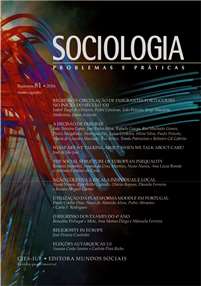Religiosity in Europe: an index, factors, and clusters of religiosity
DOI :
https://doi.org/10.7458/SPP2016816251Mots-clés :
religiosity, Europe, European Values Study (EVS)Résumé
This paper has three aims. The first aim is to measure religiosity across all European countries through an index that combines beliefs, practices, and attitudes. The second aim is to analyse the strength of societal factors on religiosity, including modernisation, communist rule, national identity, religious pluralism, and religious freedom. The final aim is to group European countries by religiosity and to characterise each cluster by dominant religions and these five societal factors. Based on EVS 2008, it was applied multivariate analysis to reach these aims. Cluster 1 is mainly composed of Orthodox, Muslims, and Catholics; cluster 2 of Catholics, Orthodox, and people without religion; cluster 3 by people without religion, Protestants, and Catholics. Across clusters, the degree of human development, religious pluralism, and religious freedom increase, while the degree of national identity decreases.
Téléchargements
Publiée
Numéro
Rubrique
Licence
Authors who publish in this Journal must agree the following terms and conditions:
- Authors retain copyright and grant the Journal the right to first publication, while simultaneously agreeing to a Creative Commons Attribution License, which allows others to share their work on condition that they cite the original author(s) and recognise that the latter’s work was first published in this Journal.
- Authors are authorised to enter into additional contracts separately, for non-exclusive distribution of the version of the work that is published in this Journal (e.g. publication in an institutional repository or as a book chapter), subject to recognition of initial publication in this Journal.



